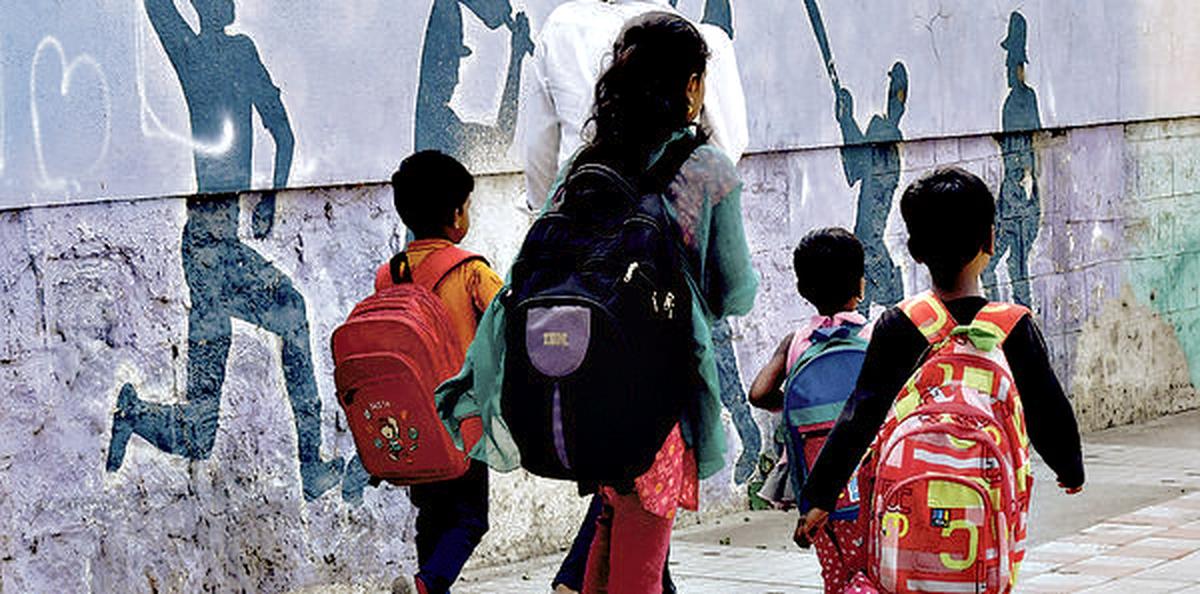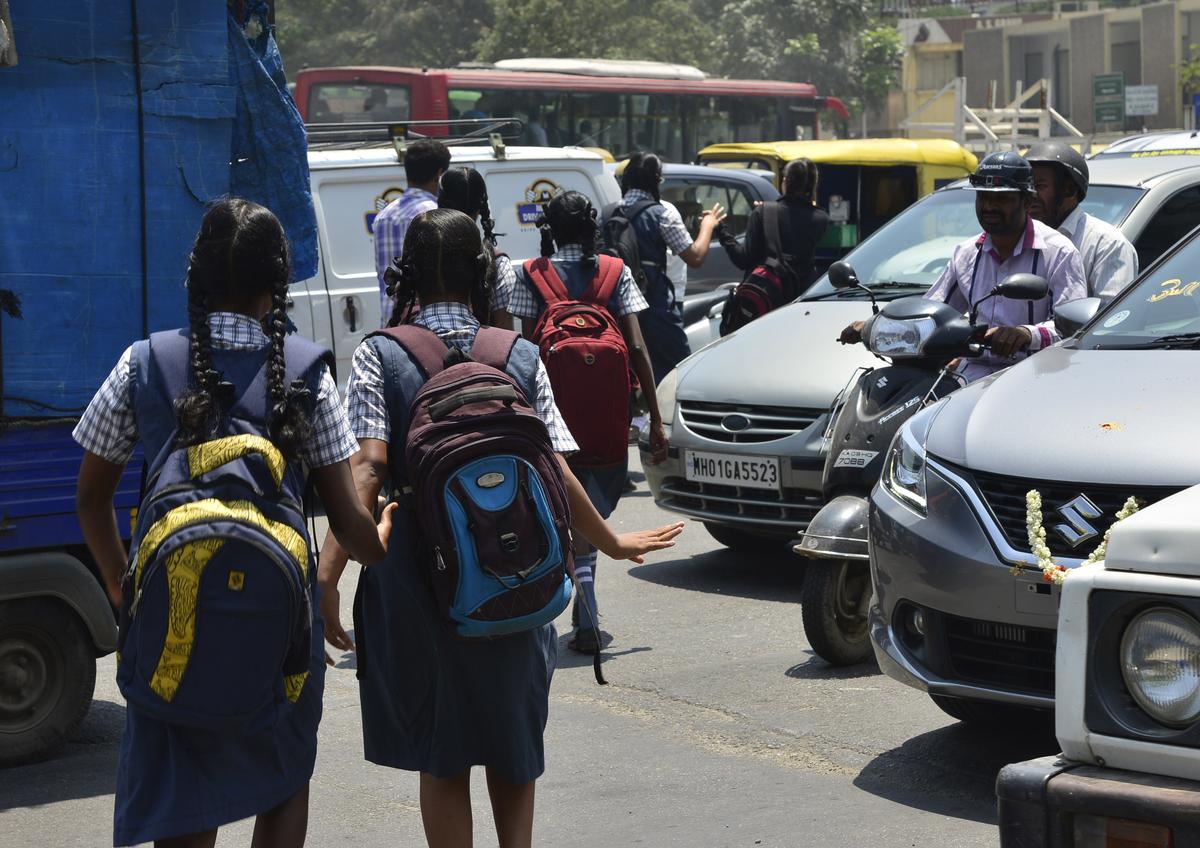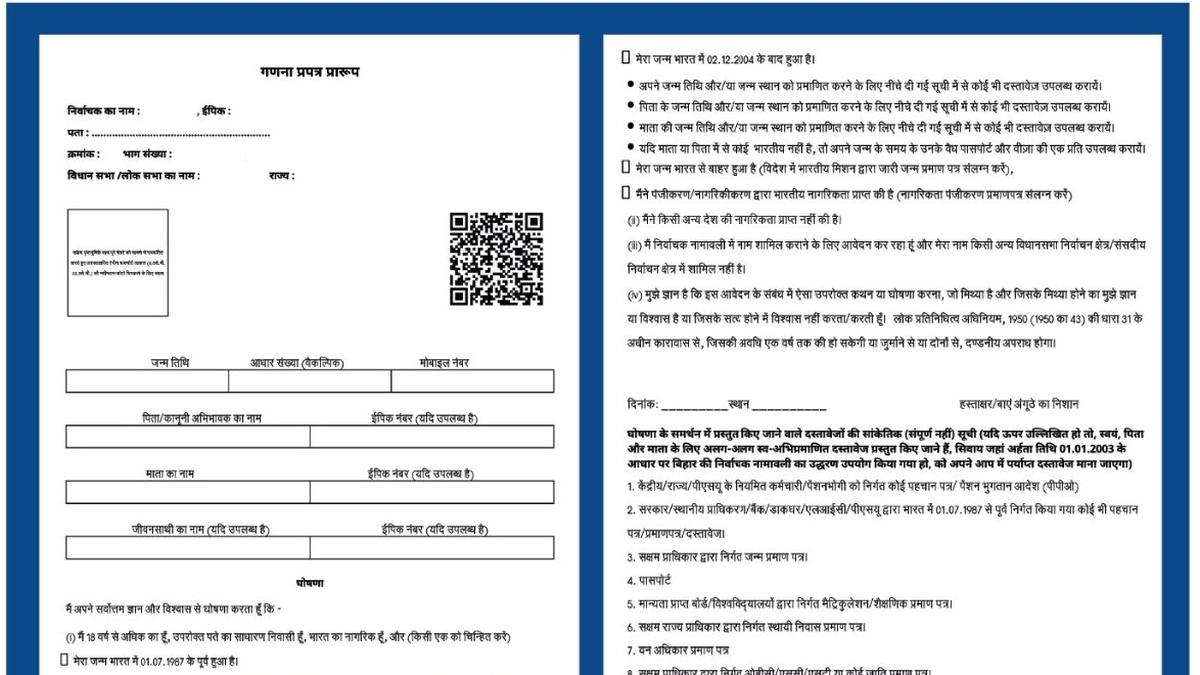An FIR was registered at the High Grounds Police station in Bengaluru recently against a private school management for admitting 10 students who had scored low marks in class 9 to a government school and getting them to write the Secondary School Leaving Certificate (SSLC) examination as private candidates through that school. The private school had collected fees, and they attended classes there through the year too. The police registered the case based on a complaint by the parents.
This is not an isolated case and violations of this and other kinds happen year after year, many of which go under the radar.
“My son was admitted to a private school in our area because it is close to our house and has relatively low fees. However, during the SSLC exam, he was registered with another school, and he wrote the exam as the other school’s student. When the school management was questioned about this, they asked what was important for us: our son writing the exam or which school he was writing it from. We kept quiet for the sake of our son’s future,” says Gayatri Devi, a parent from Bengaluru who faced this situation three years ago. This happened because the school where her son was first admitted was unauthorised.
Another parent, Rajashekar, says that last year, a private school whose recognition was not renewed registered its students in the name of a nearby aided school for the SSLC exam. “When we raised this issue, the school management claimed that they were doing it with the permission of the Karnataka School Examination and Assessment Board. Our daughter, who actually studied in a private school, is now, as per the documents, a student of an aided school,” he adds.

There are several instances of students from unauthorised schools taking the exam as “private” candidates. In 2024-25, a total of 13,154 students and in 2023-24, a total of 15,479 students were enrolled for the SSLC exam as private candidates. “Among these, many might have been from unauthorised schools,” a source in the board said.
Many unauthorised schools are running across the State, violating the rules and regulations of the Department of School Education and Literacy (DSEL). With officials either unable to stop them or choosing to look the other way, there are no curbs on them.
Other rules related to land etc.
Apart from admission and examination rule violations, there have also been cases where the norms concerning the very process of setting up schools have been flouted.
In the Karnataka Educational Institutions (Classification, Regulation and Prescription of Curricula, etc.,) Rules, 1995, there was no rule pertaining to the specific extent of land that needs to be available for establishing new schools. Only the conversion of land for educational purposes and compliance with other rules were mandatory.

Apart from admission and examination rule violations, there have been cases where the norms concerning the very process of setting up schools have been flouted.
| Photo Credit:
File Photo
But the rules were amended in 2017. According to the Karnataka Educational Institutions (Classification, Regulation and Prescription of Curricula, etc., Amendment) Rules, 2017, every private body of persons desiring to establish and maintain an educational institution imparting pre-primary, primary, secondary, and higher secondary education should own or have on lease for a minimum period of 30 years following minimum contiguous extent of land for the building and playground with permission from relevant authorities. The extent of land varies, as per the number of classes. For instance, an educational institution in the Bruhat Bengaluru Mahanagara Palike (BBMP) and other municipal corporation areas running pre-primary to higher secondary classes must have 2,000 square metres of land. And in other areas, it is 4,000 sq. m.
Additionally, various rules, including those governing land conversion for educational purposes, the building map, and fire and building safety norms, must be followed. Also, it is mandatory to obtain the consent of the local residents before starting a school in any residential area. The Block Education Officer (BEO) of the block concerned should inspect and submit a report to the government in this regard.
But many schools that started after 2017-18 in Bengaluru city have not followed any of these rules. Schools being run without the extent of land available for playground, morning assembly, or to park school buses is a common occurrence across the city, and residents constantly complain about the “nuisance” created by schools owing to this. There are neighbourhoods where moving on the streets around schools, around the time of schools starting or being let off for the day, is virtually impossible. Traffic jams are created by parents’ vehicles and school vans before and after school hours. The noise is often unbearable, especially for senior citizens, toddlers, and those suffering from medical conditions, complain neighbours.
“There is a private school near our house, which is always noisy. School vehicles are brought and parked in front of our house. We have complained to the police and the school administration many times, but to no avail. It is difficult to move around due to the traffic jam. It is even impossible to sleep peacefully. The government should not allow schools in residential areas. If a school has been started illegally, it should be closed,” says Ramachandra Gowda, a senior citizen.
No action by govt.
In 2022-23, the DSEL conducted a survey and identified 1,316 schools across the State as unauthorised. Among these, the department listed 63 schools as running without State or Central board affiliation, 294 schools as illegally offering English-medium education despite permission to teach only in the Kannada medium, and 141 schools for shifting without getting permission from the department, and so on. The department had granted a 45-day grace period for these schools to comply with the rules and rectify their mistakes in April 2023. But these schools failed to act within the stipulated period. The Commissioner of Public Instruction then ordered closure of these unauthorised schools by August 14, 2023.
But Madhu Bangarappa, Minister for School Education and Literacy, made a U-turn a day after the department ordered the closure of unauthorised private schools and announced that “in the interest of students”, they would defer this order and “initiate action in a phased manner”.
After five months, on January 9, 2024, the DSEL issued a circular to list unauthorised schools and decided to take legal action against violators. However, due to strong opposition from private schools, the department again abandoned the survey to identify unauthorised schools. After this, it has neither conducted a survey of unauthorised schools nor taken legal action against them.
“Officials, BEOs, and Deputy Directors of Public Instruction have utterly failed to monitor and take legal action against illegal schools. In the interest of students and parents, illegal schools should be closed. But, most of the private schools are run by either the kith and kin of politicians or their close associates. Therefore, officials are also under pressure not to take action, and parents and children end up facing exploitation,” says Umesh G. Gangavadi, State president of the School Development and Monitoring Committee.

A file photo of schoolchildren crossing a road in Bengaluru. People living around schools that have come up in residential areas have complained about traffic jams during morning and evening hours.
| Photo Credit:
K. MURALI KUMAR
Shashikumar D., general secretary of the Associated Managements of English Medium Schools in Karnataka, claims, “About 90% of the schools started in the State since the new rules came into effect in 2017-18 are operating illegally. The land conversion of most of the schools has not been done. There is not enough space in any residential area to open private schools if you go strictly by rules.”
He argued that despite being aware of this, the department is giving permission for opening schools. “We have written to the School Education Minister several times to take action against unauthorised schools, but to no avail. For example, in a case against an unauthorised school in Hassan district, the court has ordered an investigation and appropriate action against the school and guilty officials, but the authorities have simply not implemented the order. The school has continued its academic activities, including enrollment, this year as well. A letter has been written to the Commissioner of the DPI to take action against the school in question,” says Shashikumar.
Annapurna, a parent in Bengaluru, says schools keep parents and children in the dark about the rules and affiliation status. “Even the authorities do not take strict action against such schools. We enrol our children, and the true colours of the school are revealed only when the students have to take the board exams. Therefore, the government should immediately close unauthorised schools and prevent exploitation of students and parents,” she says.
The Karnataka State Commission for Protection of Child Rights (KSCPCR) has taken a serious view of these violations, since the children are the ultimate victims of the system.
There are several instances of students from unauthorised schools taking the exam as ‘private’ candidates. In 2024-25, a total of 13,154 students and in 2023-24, a total of 15,479 students were enrolled for the SSLC exam as private candidates.
| Photo Credit:
K. MURALI KUMAR
“Some private educational institutions are in effect taking away the right to education of children. Such traumas that children experience during their teenage haunt them for a long time. We will write to the DSEL and ask for details about unauthorised schools in the State. We will also specifically ask for information about private schools where students are appearing for the SSLC exam as private candidates through other schools, and the steps taken by the department against them. In addition, the commission has also decided to take up a suo motu case and investigate the schools where FIRs have already been registered in connection with cases of cheating children,” says K. Naganna Gowda, chairperson of the KSCPCR.
‘Government should act’
Vanajakshi, a retired headmistress, says that as per the Karnataka Educational Institutions (Registration and Recognition of Commerce Institute) Rules, 1999, the DSEL has the power to close schools that violate rules. “Only when strict action is taken against schools that violate the rules will the illegal school business come down. Cluster Resource Person (CRP) and Block Resource Centre (BRC) teams are allowed to visit all government, aided, and unaided schools regularly for inspection. However, these teams have failed in their duties, which is a major reason for the mushrooming of unauthorised schools. Therefore, the department officials should monitor the duties of CRPs and BRC personnel,” she says.
She points out that most of the unauthorised schools and those operating in violation of rules do not call parents’ meeting, which should be a red flag for parents. “Parents should be aware of this. They should visit schools regularly and inspect the education system and facilities for their children there and ask the right questions,” she suggests.


